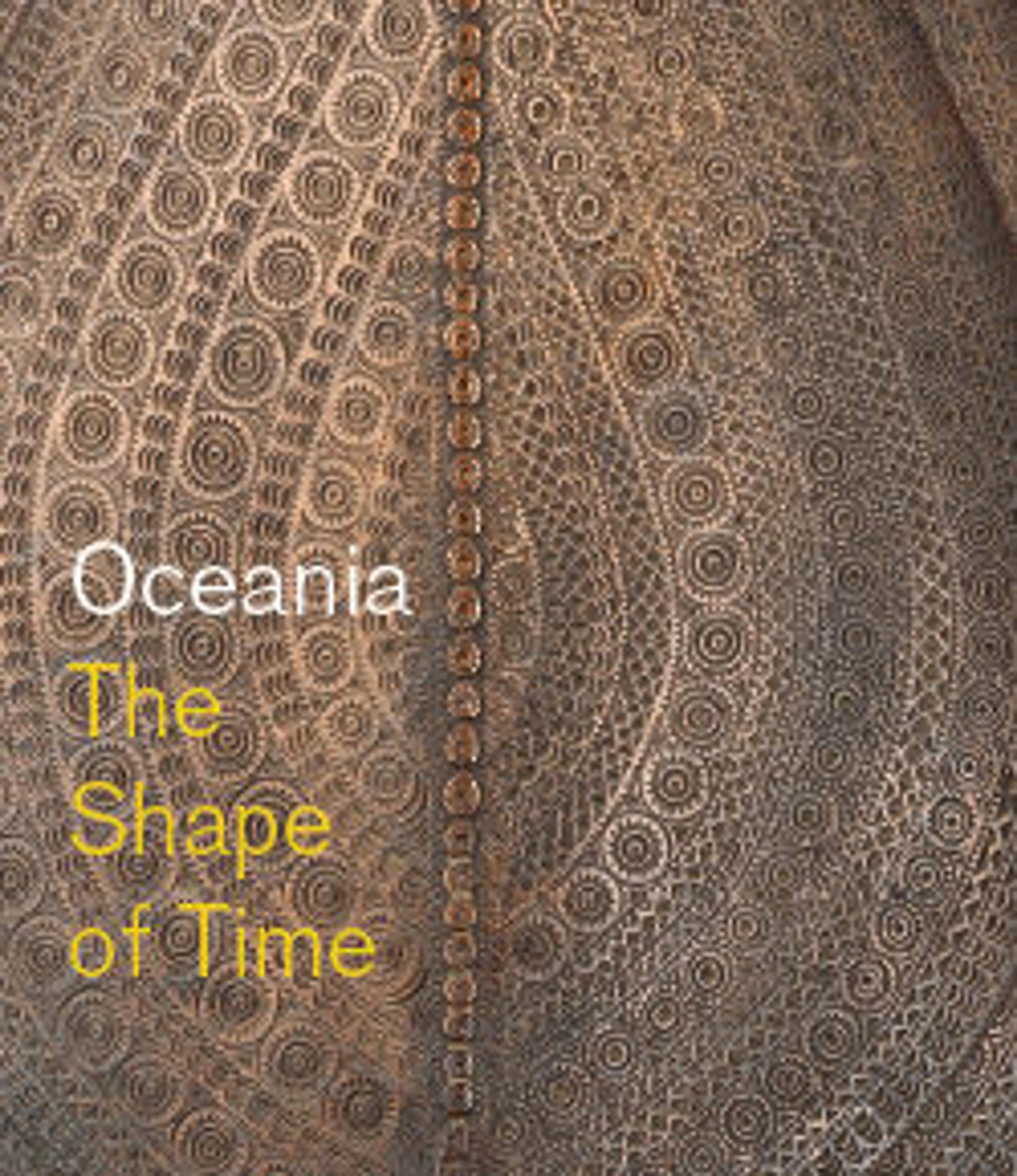Rebbilib (navigational chart)
Navigational maps, commonly known as "stick charts," were originally used in the Marshall Islands by navigators during long ocean voyages. Although stylized, the charts were functional objects providing information on the locations of individual islands as well as wave patterns.
This example consists of a gridlike structure of seven vertical sticks lashed to four horizontal ones. The corners extend outside the main grid, while three curved strips, possibly representing the patterns of ocean swells, extend from side to side. The intersections created by the slanting sticks at the corners may indicate the locations of specific islands. In some instances, small cowrie shells, absent on this example, are also used to indicate the positions of individual islands.
This example consists of a gridlike structure of seven vertical sticks lashed to four horizontal ones. The corners extend outside the main grid, while three curved strips, possibly representing the patterns of ocean swells, extend from side to side. The intersections created by the slanting sticks at the corners may indicate the locations of specific islands. In some instances, small cowrie shells, absent on this example, are also used to indicate the positions of individual islands.
Artwork Details
- Title: Rebbilib (navigational chart)
- Artist: Marshall Islands artist
- Date: 19th–early 20th century
- Geography: Republic of the Marshall Islands
- Culture: Marshallese people
- Medium: Coconut palm midrib, fiber
- Dimensions: H. 35 1/4 x W. 43 1/4 x D. 1 in. (89.5 x 109.9 x 2.5 cm)
- Classification: Basketry-Implements
- Credit Line: The Michael C. Rockefeller Memorial Collection, Gift of the Estate of Kay Sage Tanguy, 1963
- Object Number: 1978.412.826
- Curatorial Department: The Michael C. Rockefeller Wing
Audio
1186. Navigational Chart (Rebbilib)
0:00
0:00
We're sorry, the transcript for this audio track is not available at this time. Please email info@metmuseum.org to request a transcript for this track.
Listen to more about this artwork
More Artwork
Research Resources
The Met provides unparalleled resources for research and welcomes an international community of students and scholars. The Met's Open Access API is where creators and researchers can connect to the The Met collection. Open Access data and public domain images are available for unrestricted commercial and noncommercial use without permission or fee.
To request images under copyright and other restrictions, please use this Image Request form.
Feedback
We continue to research and examine historical and cultural context for objects in The Met collection. If you have comments or questions about this object record, please contact us using the form below. The Museum looks forward to receiving your comments.
